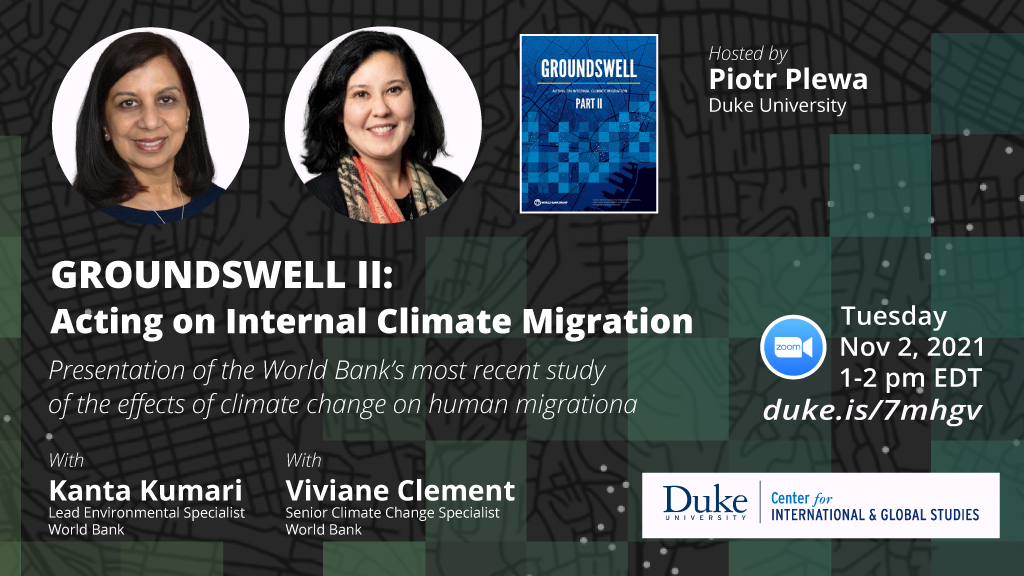About
Presentation of the World Bank’s most recent study of the effects of climate change on human migration
How does climate change affect human migration and what can governments do to prepare for it?
Water scarcity, sea level rise, heat stress and extreme events are debilitating food production and employment in places where humans have fended for themselves successfully for millennia. In some cases people have managed to adapt while staying in place. In others they have moved, primarily from rural to urban areas within their country of origin.
What magnitude of internal migration may we expect in the best and worst scenarios in the next thirty years? Which areas will experience most emigration and which areas will experience most immigration? What actions may governments take to mitigate migration as a result of climate change?
Find out the answers to these and other questions by joining Piotr Plewa (Duke University) for a conversation with Kanta Kumari and Viviane Clement, World Bank experts on climate change.
Register for the event here. Please feel free to submit any questions for our panelists in advance of the event to Amanda Frederick.
Link to media release and report: https://www.worldbank.org/en/news/press-release/2021/09/13/climate-change-could-force-216-million-people-to-migrate-within-their-own-countries-by-2050
If you need a disability-related accommodation, please contact Amanda Frederick (af181@duke.edu) by October 26.
This event is organized by the Duke University Center for International and Global Studies (DUCIGS), and co-sponsored by the Africa Initiative (AI), the Asian Pacific Studies Institute (APSI), the Center for Latin American and Caribbean Studies (CLACS), the Center for Slavic, Eurasian and East European Studies (CSEEES), the Duke University Middle East Studies Center (DUMESC), the Duke Center for International Development (DCID), the Duke University Energy Initiative (EI), the Nicholas Institute for Environmental Policy Solutions (NIEPS) at Duke.


